第101章 APPENDIX IV(2)
"I see," murmurs the American, crushed, "and these more men have more tents and more potio, which must also be carried. It's like the House that Jack Built."So our American concludes still once again that the other fellow knows his own game, and starts out. He learns he has what is called a "modest safari"; and spares a fleeting wonder as to what a really elaborate safari must be. The procession takes the field. He soon sees the value of the four askaris-the necessity of whom he has secretly doubted. Without their vigorous seconding the headman would have a hard time indeed. Also, when he observes the labour of tent-making, packing, washing, and general service performed by his tent boy, he abandons the notion that that individual could just as well take care of the horse as well, especially as the horse has to have all his grass cut and brought to him. At evening our friend has a hot bath, a long cool fizzly drink of lime juice and soda; he puts on the clean clothes laid out for him, assumes soft mosquito boots, and sits down to dinner. This is served to him in courses, and on enamel ware.
Each course has its proper-sized plate and cutlery. He starts with soup, goes down through tinned whitebait or other fish, an entree, a roast, perhaps a curry, a sweet, and small coffee. He is certainly being "done well," and he enjoys the comfort of it.
There comes a time when he begins to wonder a little. It is all very pleasant, of course, and perhaps very necessary; they all tell him it is. But, after all, it is a little galling to the average man to think that of him. Your Englishman doesn't mind that;he enjoys being taken care of: but the sportsman of American training likes to stand on his own feet as far as he is able and conditions permit. Besides, it is expensive. Besides that, it is a confounded nuisance, especially when potio gives out and more must be sought, near or far. Then, if he is wise, he begins to do a little figuring on his own account.
My experience was very much as above. Three of us went out for eleven weeks with what was considered a very "modest" safari indeed. It comprised one hundred and eighteen men. My fifth and last trip, also with two companions, was for three months. Our personnel consisted, all told, forty men.
In essentials the Englishman is absolutely right. One cannot camp in Africa as one would at home. The experimenter would be dead in a month. In his application of that principle, however, he seems to the American point of view to overshoot. Let us examine his proposition in terms of the essentials-food, clothing, shelter.
There is no doubt but that a man must keep in top condition as far as possible; and that, to do so, he must have plenty of good food. He can never do as we do on very hard trips at home: take a little tea, sugar, coffee, flour, salt, oatmeal. But on the other hand, he certainly does not need a five-course dinner every night, nor a complete battery of cutlery, napery and table ware to eat it from. Flour, sugar, oatmeal, tea and coffee, rice, beans, onions, curry, dried fruits, a little bacon, and some dehydrated vegetables will do him very well indeed-with what he can shoot. These will pack in waterproof bags very comfortably.
In addition to feeding himself well, he finds he must not sleep next to the ground, he must have a hot bath every day, but never a cold one, and he must shelter himself with a double tent against the sun.
Those are the absolute necessities of the climate. In other words, if he carries a double tent, a cot, a folding bath; and gives a little attention to a properly balanced food supply, he has met the situation.
If, in addition, he takes canned goods, soda siphons, lime juice, easy chairs and all the rest of the paraphernalia, he is merely using a basic principle as an excuse to include sheer luxuries.
In further extenuation of this he is apt to argue that porters are cheap, and that it costs but little more to carry these extra comforts. Against this argument, of course, I have nothing to say. It is the inalienable right of every man to carry all the luxuries he wants. My point is that the average American sportsman does not want them, and only takes them because he is overpersuaded that these things are not luxuries, but necessities. For, mark you, he could take the same things into the Sierras or the North-by paying; but he doesn't.
I repeat, it is the inalienable right of any man to travel as luxuriously as he pleases. But by the same token it is not his right to pretend that luxuries are necessities. That is to put himself into the same category with the man who always finds some other excuse for taking a drink than the simple one that he wants it.
The Englishman's point of view is that he objects to "pigging it," as he says. "Pigging it" means changing your home habits in any way. If you have been accustomed to eating your sardines after a meal, and somebody offers them to you first, that is "pigging it." In other words, as nearly as I can make out, "pigging it" does not so much mean doing things in an inadequate fashion as DOING THEM DIFFERENTLY. Therefore, the Englishman in the field likes to approximate as closely as may be his life in town, even if it takes one hundred and fifty men to do it. Which reduces the "pigging it" argument to an attempt at condemnation by calling names.